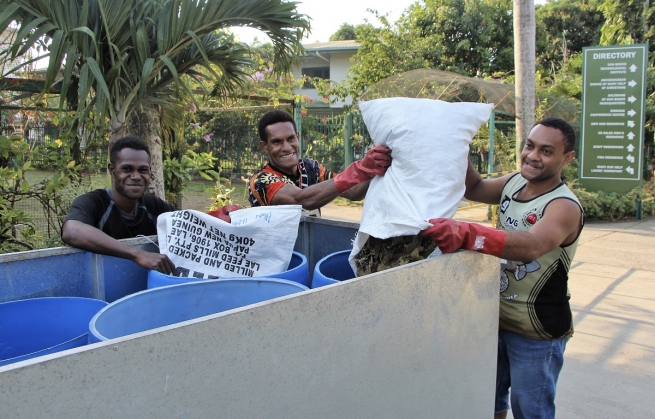The DBTI responded by initiating this waste management project. First of all, trash cans were purchased to proceed with separate collection. Weekly, staff members and some community residents take care of sorting the waste into the appropriate bins. The Institute is then thinking about how to solve the problem of the incinerator, into which cardboard and plastic materials are usually thrown. The smoke produced can disturb the community, as well as have a costly environmental impact. The ashes are thus being disposed of appropriately.
In addition, this year three large compost pits were built at the back of the school, two in the Salesian residence and two more in the staff houses. However, this needs constant monitoring.
The goal, as explained by the DBTI, is to be "Zero Waste." The focus is therefore on the conservation of resources, responsible production and, above all, the reuse of waste materials. The aim is to avoid incinerating waste or dumping it on land or in the water. Dumping waste into the environment is a serious threat to human health.
To ensure proper waste management, the DBTI has organized a team, made up of volunteers: 8 staff members and 6 students. Each of them studies and works in different areas of expertise, ranging from school cleaning to collecting plastic, paper and glass. Meanwhile, efforts to recycle different types of waste are intensifying. A recycling shed has also been set up near the three compost pits. All of these waste management initiatives also took place during the blockade imposed due to the COVID-19 pandemic.
At the moment, much of the effort in waste management is exercised by students and staff, but the hope is to involve increasingly more people. What is certain is that young people continue to be the real protagonists of concrete initiatives and actions for the care and conservation of the environment.


